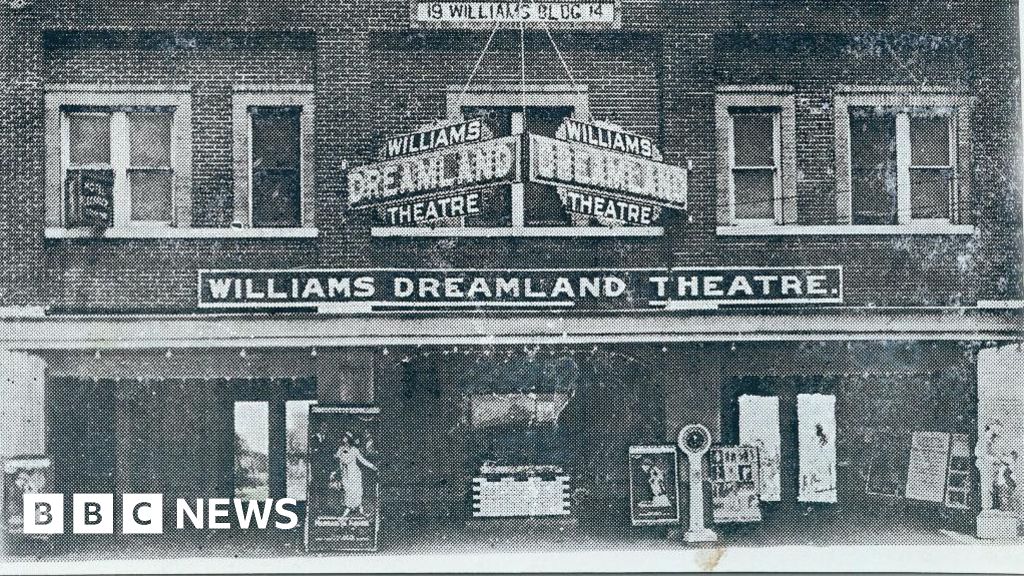ARTICLE AD BOX
image sourceAFP
image captionThe helicopter was photographed landing on the roof of the US embassy in KabulAs the US continues its withdrawal from the Afghan capital, social media has been flooded with pictures of a helicopter evacuating people from the American embassy in Kabul.
It's a familiar image to some.
Back in 1975, photographer Hubert van Es snapped a now-iconic picture of people scrambling into a helicopter on a rooftop in Saigon, at the close of the Vietnam War.
Analysts and US lawmakers - both Republican and Democrat - have been comparing the so-called fall of Saigon with the Taliban takeover of Kabul.
What was the fall of Saigon?
The Vietnam War was a conflict between the communist government of North Vietnam, and South Vietnam and its principal ally, the US.
Against the backdrop of the Cold War, the North was supported by the Soviet Union and other communist allies, while the South was backed by Western forces - including hundreds of thousands of US troops.
It was costly and lengthy war for the US - lasting almost 20 years - and extremely divisive among Americans.
The phrase "the fall of Saigon" refers to the capture of Saigon, the South Vietnamese capital, on 30 April 1975 by communist forces of the People's Army of Vietnam and the Viet Cong.
image sourceGetty Images
image captionIn the iconic photo from 1975, people are seen boarding a helicopter on the roof of the CIA station in SaigonAmerica withdrew its military from South Vietnam in 1973, and two years later the country announced its surrender after Northern forces took Saigon - later renaming it Ho Chi Minh City, after the late North Vietnamese leader.
Like Kabul, the city's capture came much quicker than the US had expected.
In response, the US abandoned its embassy in Saigon and evacuated over 7,000 American citizens, South Vietnamese and other foreign nationals by helicopter - a scramble known as Operation Frequent Wind.
Is it a fair comparison to Kabul?
By its end, the Vietnam War had become increasingly unpopular back in the US, and had cost not only billions of dollars but over 58,000 American lives.
For some, the fall of Saigon was a blow to America's standing on the world stage.
In the decades since, the term Vietnam Syndrome has emerged - denoting a reluctance by American voters to commit military power abroad.
Many US policymakers have drawn parallels between Saigon and Kabul.
"This is Joe Biden's Saigon," tweeted Elise Stefanik, chair of the Republican House Conference. "A disastrous failure on the international stage that will never be forgotten."
Last month Gen Mark Milley, chairman of the US Joint Chiefs of Staff, dismissed the comparison.
"I do not see that unfolding," Gen Milley told reporters. "I may be wrong, who knows, you can't predict the future, but... the Taliban just aren't the North Vietnamese army. It's not that kind of situation."
Symbolism aside, there are major differences between the two.
The fall of Saigon took place two years after US forces were withdrawn from Vietnam. America's evacuation from Kabul, meanwhile, is happening while the US was already preparing to leave Afghanistan.
But while the political fallout for President Gerald Ford was limited in 1975, it's unclear what impact will be felt by President Biden, despite the war's unpopularity at home.
"I have little doubt that it's going to hurt Biden," says Christopher Phelps, an associate professor of American Studies at the University of Nottingham. "It's going to be viewed as a loss, and possibly as a disgrace... it really was his call, fairly or not."

 3 years ago
147
3 years ago
147








 English (US) ·
English (US) ·